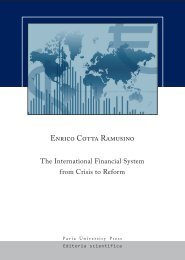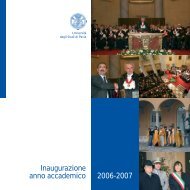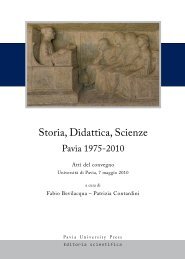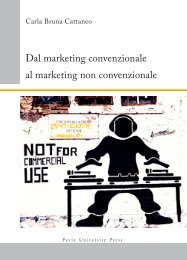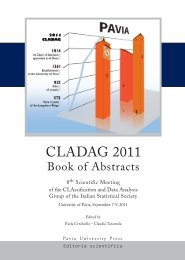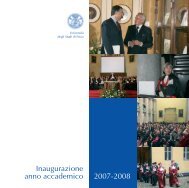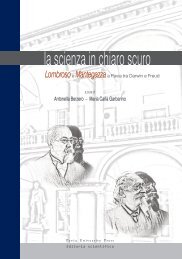The Palestinian Economy. Theoretical and Practical Challenges
The Palestinian Economy. Theoretical and Practical Challenges
The Palestinian Economy. Theoretical and Practical Challenges
You also want an ePaper? Increase the reach of your titles
YUMPU automatically turns print PDFs into web optimized ePapers that Google loves.
Proceedings “<strong>The</strong> <strong>Palestinian</strong> <strong>Economy</strong>: <strong>The</strong>oretical <strong>and</strong> <strong>Practical</strong> <strong>Challenges</strong>” 405<br />
unemployed when compared to those with college education. This result could be<br />
explained based on the fact that uneducated people have more options in the labour<br />
market in terms of availability of unskilled jobs, low paying jobs mainly in agriculture<br />
<strong>and</strong> service sectors.<br />
Locality: the respondents who live in urban areas are less likely to be<br />
underemployed or unemployed rather than to be fully employed when compared to those<br />
living in rural areas <strong>and</strong> refugee camps.<br />
Age: the age group 20-24 years are more likely (3.078 times more) to be<br />
underemployed rather than to be fully employment. <strong>The</strong> effect is strongest in the age<br />
group 20-24 <strong>and</strong> weakest for 45-49 years of age. Also, individuals in the age group 20-24<br />
were more likely (2.586 times more) to be unemployed rather than to be fully employed.<br />
<strong>The</strong> effect is strongest for those in the age group 20-24 <strong>and</strong> weakest for those older than<br />
49 years old.<br />
Activity: for the employed respondents, those who work in construction are more<br />
likely (4.481) to be underemployed rather than to be fully employed. <strong>The</strong> effect is<br />
strongest for the respondent that work in construction <strong>and</strong> weakest for the respondents<br />
that work in commerce –hotels. Also, respondents who work in commerce <strong>and</strong> hotels are<br />
.057 times less likely than the respondents who work in services to be unemployed rather<br />
than to be fully employed.<br />
Social Status: married respondents are less likely (0.701 times less) to be<br />
underemployed rather than to be fully employed. <strong>The</strong> effect is strongest for married<br />
respondents <strong>and</strong> weakest for the never married. Also, never married respondents are more<br />
likely (1.831 times more) to be unemployed rather than to be full employed. <strong>The</strong> effect is<br />
strongest for the never married <strong>and</strong> weakest for married respondents.<br />
Region: respondents living in West Bank are less likely (0.417 times less) to be<br />
underemployed rather than to be fully employed when compared to those living in Gaza<br />
strip to be underemployed rather than to be full employed. Also, those who live in West<br />
Bank are 0.897 times less likely than the respondents who live in Gaza strip to be<br />
unemployed rather than to be fully employed.





